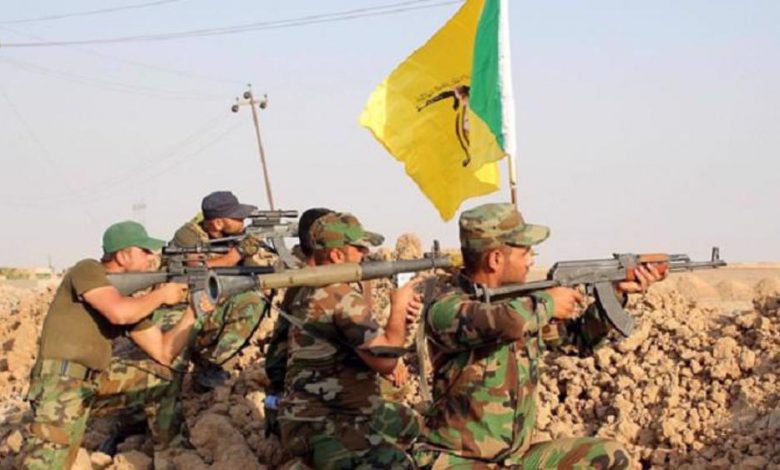Iraqi resistance groups fire ‘all their weapons’ against US troops if they fail to withdraw: Kata’ib Hezbollah
Iraq's anti-terror Kata'ib Hezbollah group says all Iraqi resistance groups and factions will “use all the weapons at their disposal” against American forces in the Arab country if Washington refuses to withdraw its forces despite a parliament’s decision to expel them from Iraq.

In a joint statement on Saturday, Iraqi resistance groups agreed on a conditional ceasefire to American forces present in Iraq, saying they would halt their military operations against the US troops, including rocket attacks, providing that Washington does not persist in maintaining their presence in the Arab country.
They stressed that the “conditional opportunity” was created “to respect the good efforts made by some national and political figures to draw up a clear and specific timetable for the implementation of the decision of the Iraqi people, parliament, and government on withdrawal of foreign troops from Iraq.”
Back in January after a Trump-authorized airstrike, which killed top Iranian anti-terror commander Lieutenant General Qassem Soleimani and his Iraqi trenchmate, Abu Mahdi al-Muhandis, Iraqi lawmakers unanimously approved a bill, demanding in a resolution the withdrawal of all American and other foreign military forces from the Arab country.

On Sunday, Muhammad Mohi, spokesman for Kata’ib Hezbollah, said in an exclusive interview with Reuters that Baghdad must implement the parliamentary resolution.
“The factions have presented a conditional ceasefire. It includes all factions of the (anti-US) resistance, including those who have been targeting US forces,” he said.
Mohi said that there was no deadline for Baghdad to implement the parliament’s resolution, but warned that “If America insists on staying and doesn’t respect the parliament’s decision then the factions will use all the weapons at their disposal”.
He also indicated that Katyusha rocket attacks on American forces and diplomatic compounds had merely been “a message that you’re not welcome in the country” and that worse attacks could follow.
The parliament’s decision came two days after an American combat drone, on US President Donald Trump’s direct orders, assassinated Lieutenant General Soleimani, the commander of the Quds Force of Iran’s Islamic Revolution Guards Corps, along with Abu Mahdi al-Muhandis, the deputy head of Iraq’s anti-terror Popular Mobilization Units (PMU), and their companions.
On January 9, former Iraqi prime minister, Adel Abdul-Mahdi, called on Washington to dispatch a delegation to Baghdad tasked with formulating a mechanism for the withdrawal. He also said that Iraq rejected any violation of its sovereignty, particularly the US military’s violation of Iraqi airspace in the assassination airstrike.
Washington has so far refused to withdraw its troops, with Trump balking at the idea with the threat to seize Iraq’s oil money held in bank accounts in the US.
Kata’ib Hezbollah is an anti-US unit operating under the PMU, also known as Hashd al-Sha’abi, which includes more than 40 militia groups fighting Takfiri terrorism.
PMU fighters have played a significant role in the liberation of areas held by Daesh terrorists ever since the Takfiri group launched an offensive in the country in 2014, overrunning vast swathes in lightning attacks.
Back in November 2016, the Iraqi parliament voted to integrate the PMU, which was formed shortly after the emergence of Daesh, into the military.
Washington blames Kata’ib Hezbollah for launching dozens of rocket attacks against US installations and forces in Iraq. The group denies carrying such attacks.
Smaller and murky factions have so far claimed some of those anti-US attacks.
The heavily fortified Green Zone in Baghdad, which hosts foreign diplomatic sites and government buildings, has been frequently targeted by rockets and explosives in the past few years.
Since the much-condemned US assassination airstrike on January 3, anti-American sentiments have been running high in Iraq.







